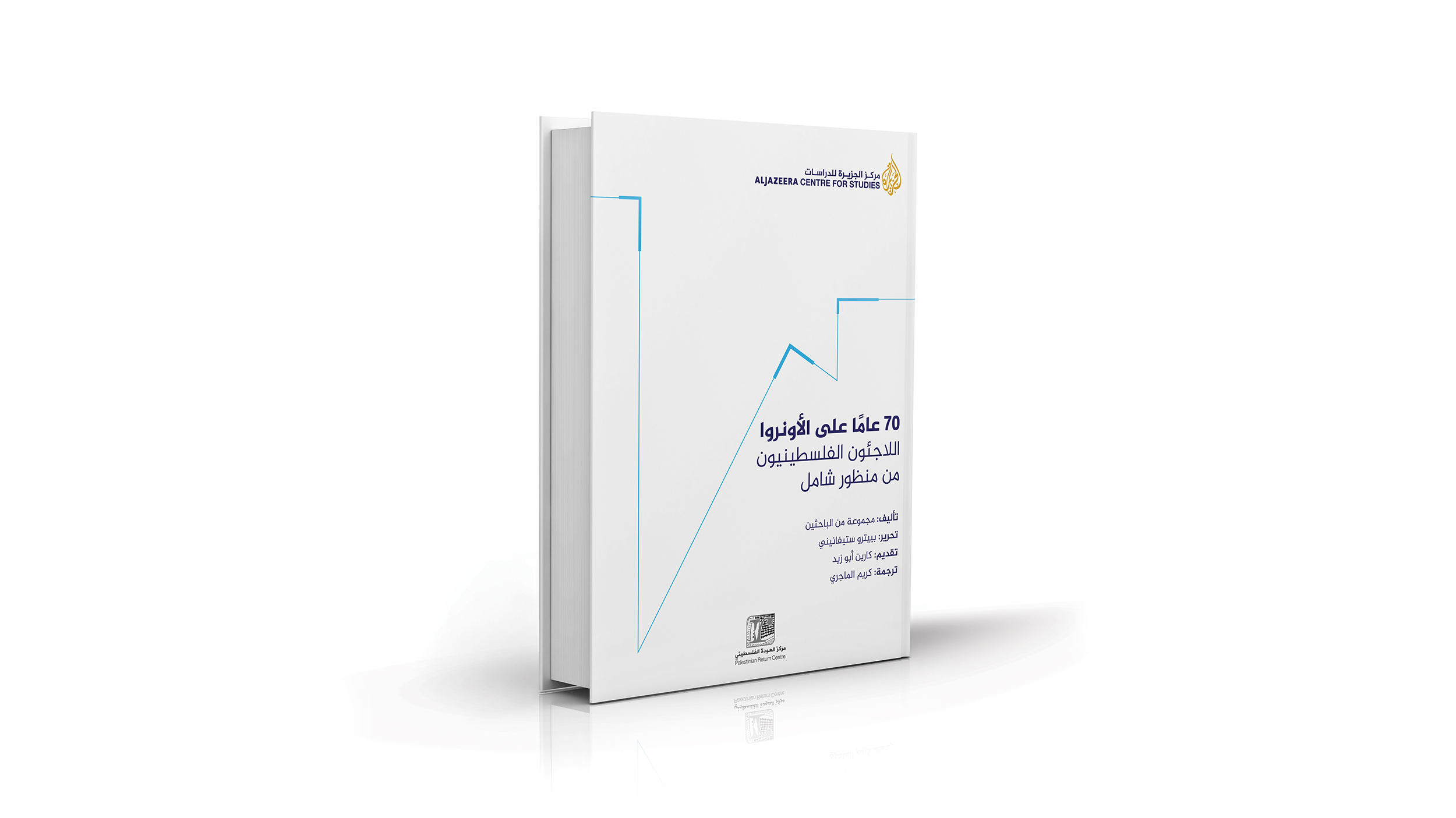In 2022, Al Jazeera Centre for Studies highlighted this UN agency during an extensive research conference in London. It published a summary of the discussions in a book titled UNRWA at 70: Palestinian Refugees in Context, which can is available in Arabic.

Al Jazeera Centre for Studies released on 1 May 2022 the Arabic translation of UNRWA at 70: Palestinian Refugees in Context authored by a group experts and researchers. The book contains summaries of research papers that were presented during a conference organised by the centre in partnership with the Palestinian Return Centre and the European Centre for Palestine Studies at the University of Exeter in London on 30 November 2019, the year that marked the 70th anniversary of the United Nations Relief and Works Agency for Palestine Refugees in the Near East (UNRWA). The agency was established on 8 December 1949.
Karen Abu Zayd, former UNRWA Commissioner-General, prefaces the book by discussing the advantage of having a group of writers from different walks of life, orientations and nationalities participate in it, maintaining that that enriches its substance and its diversity and comprehensiveness.
After the preface, the book contains six chapters. The first of which was written by Ilan Pappe, Director of the European Centre for Palestine Studies at the University of Exeter, and Johnny Mansour, Lecturer at the Department of History Studies at the Academic College in Beit Berl, under the title, “Solidarity in Times of Trouble: Nablus and the Palestinian Refugees in 1948.” In this chapter, they shed light on societal response during the Nakba when Palestinians established a solidarity network that preceded the establishment of UNRWA. Pappe and Mansour even obtained previously unpublished documents from the Nablus municipal library that contain details of a committee formed for the purpose of supporting the newly displaced Palestinians.
The second chapter, “Whose Agency? UNRWA and the Palestinian Refugees in History,” by Anne Irfan, Departmental Lecturer in Forced Migration at the Refugee Studies Centre at the University of Oxford, presents the representation of Palestinian refugees in the agency since its establishment. Irfan concludes that the UNRWA’s current structure is still marred by tensions between mandate and accountability, and between funders and refugee beneficiaries, and argues that it is important that refugees do not get lost in these tensions.
Chapter three, “‘I’m a Refugee, But I Live in Palestine, My Homeland.’ Narratives of Home, Camp and Identity among Palestinian Refugees in the West Bank,” by Sophie Richter-Devroe, Associate Professor in the Middle Eastern Studies Department at Hamad Bin Khalifa University, explores narratives of home, camp and identity among Palestinian refugees in an ethnographic framework that reveals aspects of the paradox between the life and identity of refugees within Palestine itself, particularly through a study of the conditions of refugees in the West Bank where they are subject to various forms of authority – the Palestinian Authority, the UNRWA and the Israeli settler-colonial regime – and the impact of that on them.
Chapter four, “Defining What Is ‘Important’ and What Is ‘Urgent’ in the Palestinian Issues. Toward Engaging UNRWA in the Camp Governance,” by Sari Hanafi, Professor of Sociology at the American University of Beirut, discusses the idea of the UNRWA’s participation in the administration of Palestinian camps both within Palestine and in diaspora, and maintains that is both important and urgent. It also discusses the attempts of certain politicians to take advantage of the cause of Palestinian refugees in their countries as a means of garnering electoral gains, using the example of the provocation of fear of settlement in Lebanon.
The fifth chapter, “Advancing Palestinian Refugee Rights after a 70-Year-Long Impasse: What Role for International Law?”, by Francesca Albanese, researcher at the Institute for the Study of International Migration at Georgetown University in Qatar, exposes efforts to delegitimise the Palestinian refugee question and UNRWA, arguing that they are based on the “selective use and an erroneous understanding of facts regarding Palestinian refugees and UNRWA” and misinterpretation of the international legal regime refugee framework and the mandate of UNRWA.
Finally, the sixth chapter, UNRWA and Palestine Refugees: Servicing Peace into an Eighth Decade,” by Terry Rempel, founding member of BADIL Resource Center for Palestinian Residency and Refugee Rights, starts by analysing a Palestinian postage stamp from the 1960s that was released on the occasion of the World Refugee Year and portrays an image of a tent and a woman with her child, moving on to the general image of Palestinian displacement and the problems that come with it. It also examines the challenges facing UNRWA as it seeks to provide refugees with a dignified way of life, whether through education, employment or the provision of basic necessities.
The book can be read or downloaded here.